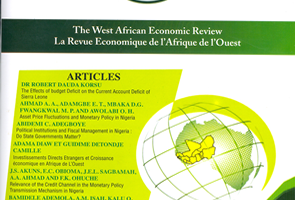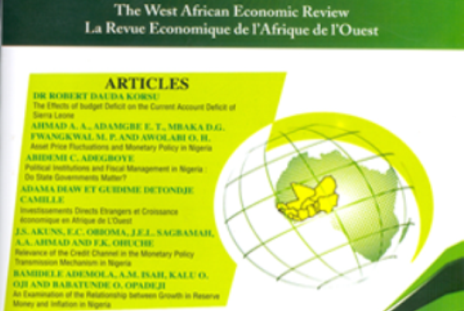Hassan O. Ozekhome
Abstract
Determining an appropriate exchange rate regime that enhances macroeconomic performance and macroeconomic stability is a viable policy strategy for accelerating greater economic integration, particularly given the current state of affairs, regarding the proposed single currency drive for West Africa. It is against this backdrop that this paper empirically investigates the determinants of the choice of exchange rate regime in the WAMZ over the period 19995-2015. It reviews the key empirical and policy issues associated with it, and assess the state of play in the debate, as well as the costs and benefits of each regime. Adopting a multinomial logit regression model, the empirical results reveal that growth rate of real GDP, domestic openness, foreign reserves, government consumption, inflation rate and inflation variability are significant variables that influence the choice of exchange rate regime in the WAMZ at any point in time or across time. The paper recommends amongst others; the adoption of sound monetary and fiscal policies in the zone in order to enhance macroeconomic performance, increase policy coordination and harmonization, strong political will and commitment, and legal and institutional structures that will facilitate the long-run goal of monetary union in the WAMZ.
Keywords: Exchange rate regimes, Convergence, Optimum currency areas, Policy coordination.
JEL Classification: F02, F31


